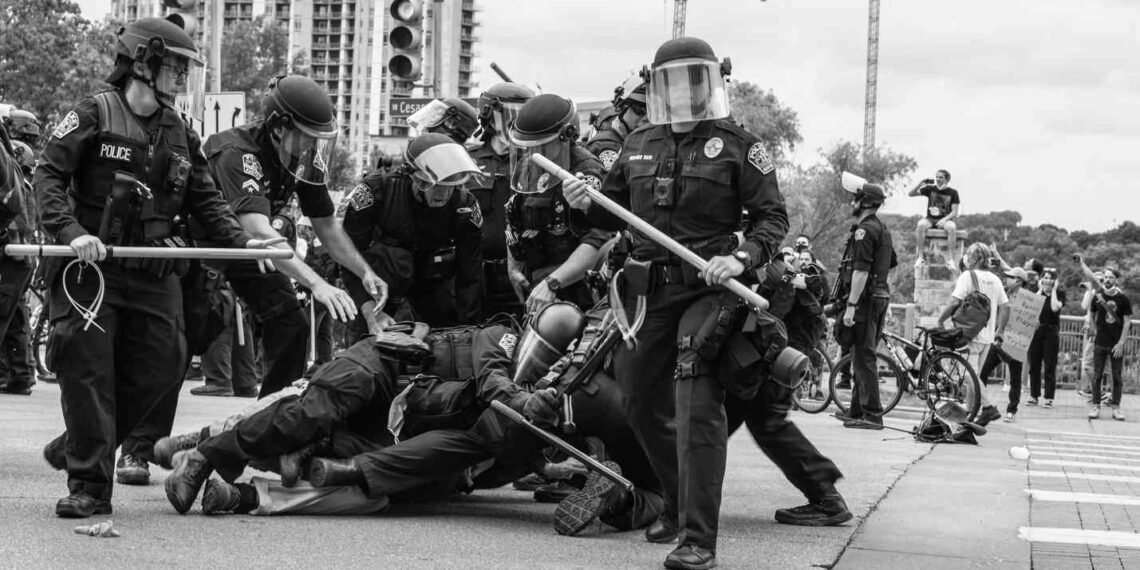Excessive force occurs when a law enforcement officer uses more physical power than is reasonably necessary to perform a lawful action (like making an arrest). How do you know if what happened to you or someone you love might qualify as an excessive force case in Texas?
You may have an excessive force case if:
If you recognize any of these signs, it may be time to speak with a Texas excessive force attorney to understand your legal options better.
Table of Contents
Steps to Take After an Incident Involving Excessive Force
1. Get Medical Attention
Even if your injuries seem minor, seek medical care right away. A professional medical evaluation creates a documented record that links your injuries to the encounter. This can serve as critical evidence later.
2. Write Down Everything You Remember
As soon as possible, take the time to write down a detailed account of what happened. Include the location, time, what led up to the incident, what the officers said or did, and the names of any officers or witnesses. Memories fade quickly, so capturing the details early is essential.
3. Preserve Evidence
If you or someone else has video or photo evidence of the incident, save it in multiple locations and refrain from altering it in any way. If your clothing was damaged or bloodied, keep it as physical evidence. Also, back up any messages or communications you had with law enforcement after the event.
4. Identify Witnesses
If there were bystanders who witnessed the incident, try to obtain their names and contact information. Witness testimony can provide a powerful third-party perspective that supports your account.
5. Don’t Make Public Statements
Avoid discussing the incident on social media or in public forums. Even well-meaning posts can be used against you later. It’s best to speak with an attorney before sharing any details publicly.
6. Contact a Civil Rights Attorney
Time is critical in excessive force cases. An attorney can help you gather evidence, preserve your rights, and begin the legal process of holding the responsible parties accountable. At Elmazi Law, we offer consultations to help you understand your options and determine the next steps when dealing with an excessive force case in Texas.
What Counts as Excessive in the Eyes of the Law?
Not every use of force by police is illegal. Officers are allowed to use physical force when necessary to make an arrest, defend themselves, or protect the public. The question is whether the amount of force used was objectively reasonable in light of the situation at the time.
Courts rely on a standard established in the Supreme Court case Graham v. Connor (1989), which asks whether another reasonable officer in the same situation would have acted the same way. In making that determination, courts consider factors such as:
- The severity of the alleged crime
- Whether the suspect posed an immediate threat to the officer or others
- Whether the person was actively resisting arrest or trying to flee
These cases are fact-specific, meaning that the details of what happened matter greatly. The law prohibits the use of excessive or retaliatory force, especially once a suspect has been subdued, restrained, or is no longer a threat.
Even if someone was suspected of a crime, they still have constitutional protections under the Fourth Amendment. If unnecessary or aggressive police actions violated those protections, you may have grounds for a legal claim.
Why Proving Excessive Force Is Harder Than You Think
Even if you have clear evidence that a police officer used unnecessary force, that may not be enough to win your case. This is due to a legal concept known as qualified immunity.
Qualified immunity is a legal principle that shields government officials, including police officers, from being sued for actions taken in the course of their duties, unless those actions violate a clearly established constitutional right. In simpler terms, even if the officer’s conduct seems wrong, they may not be held personally liable unless there’s a previous court decision showing that nearly identical behavior was ruled unconstitutional.
This creates a significant legal barrier for cases involving excessive force. Victims must prove not only that the officer acted unreasonably, but also that the law was already clear enough that any reasonable officer would have known their actions were unlawful.
This is why it’s so important to work with an attorney who understands the nuances of civil rights litigation. At Elmazi Law we have experience challenging qualified immunity by examining prior court rulings, crafting robust legal arguments, and exploring every available path to overcome qualified immunity and hold officers accountable.
Protecting Your Rights Starts with Taking Action
Proving excessive force in Texas is not easy, but it is possible with the right legal support. From navigating qualified immunity to gathering the right evidence, these cases require experience, preparation, and a deep understanding of civil rights law.
If you or a loved one has suffered from what you believe to be excessive force, do not wait. The sooner you act, the better your chances of building a strong case.
At Elmazi Law, we are committed to helping individuals stand up to injustice and fight back against unlawful treatment. Contact us today for a consultation and let us help you understand your rights and take the next step toward accountability.


